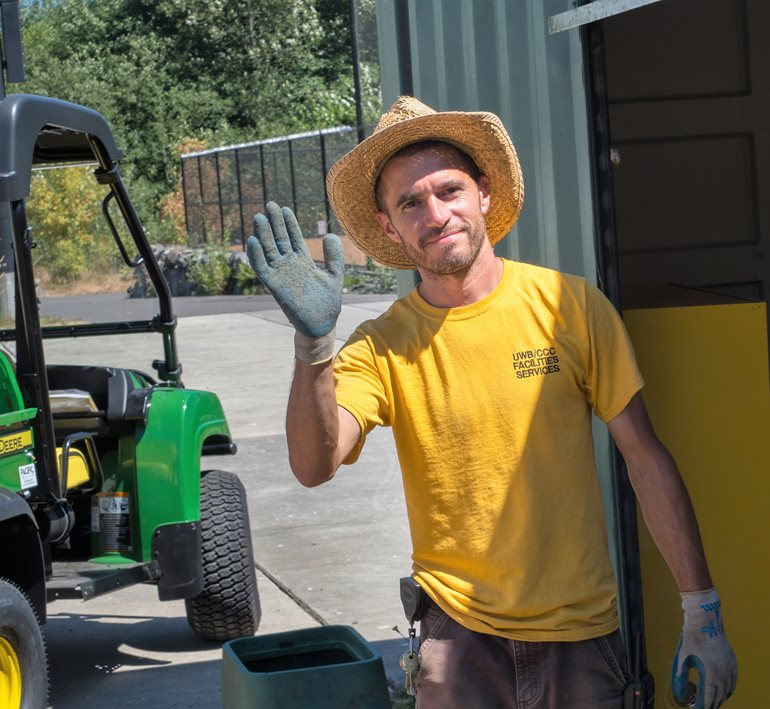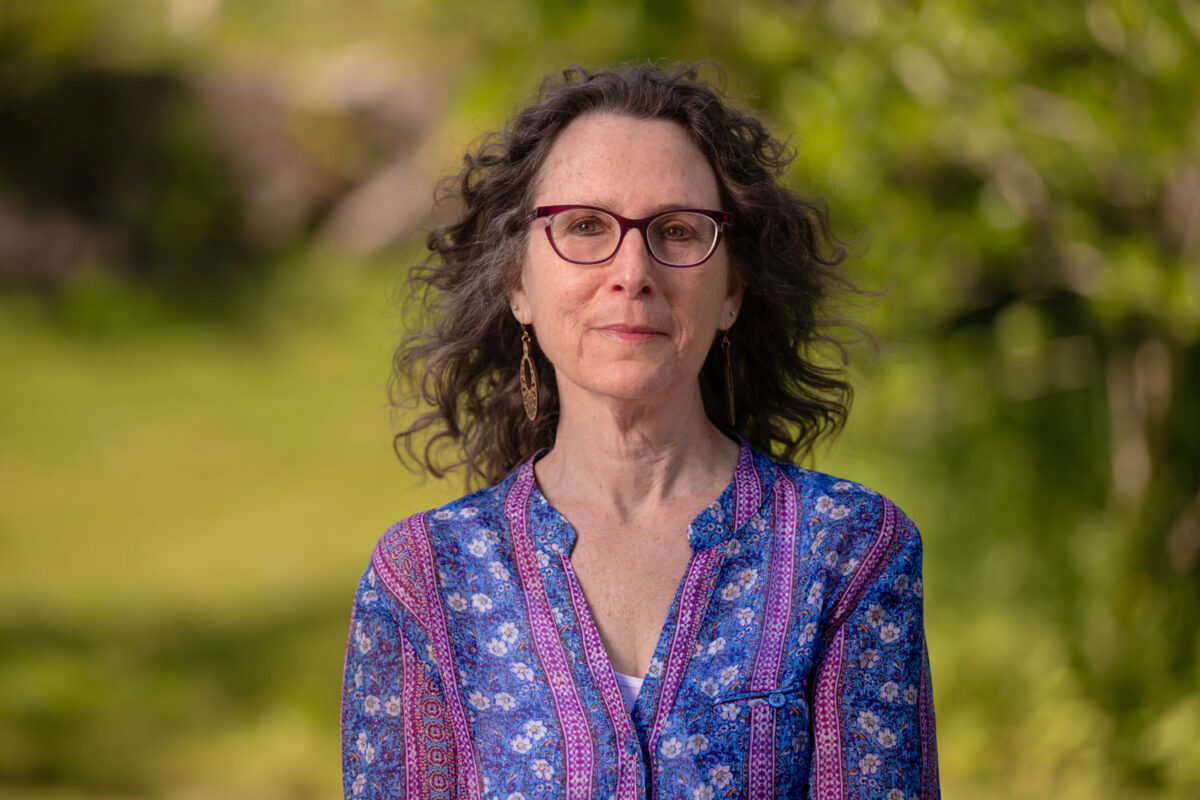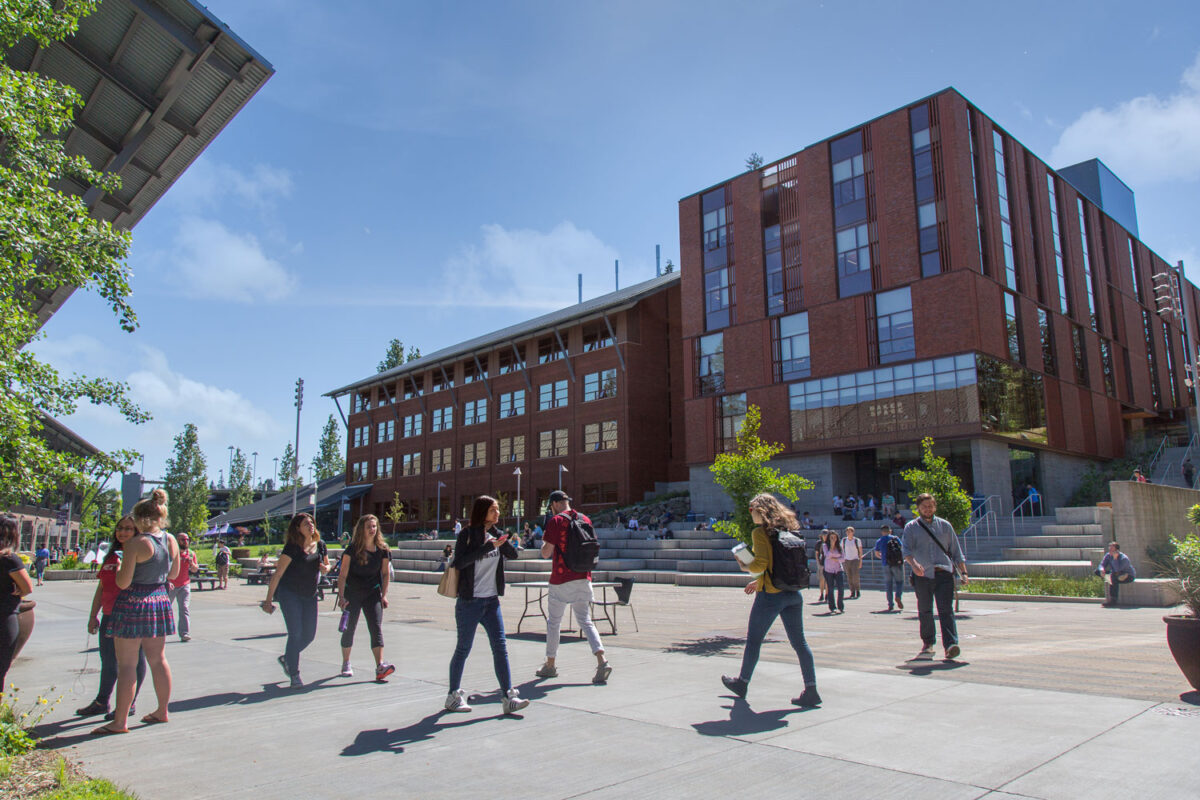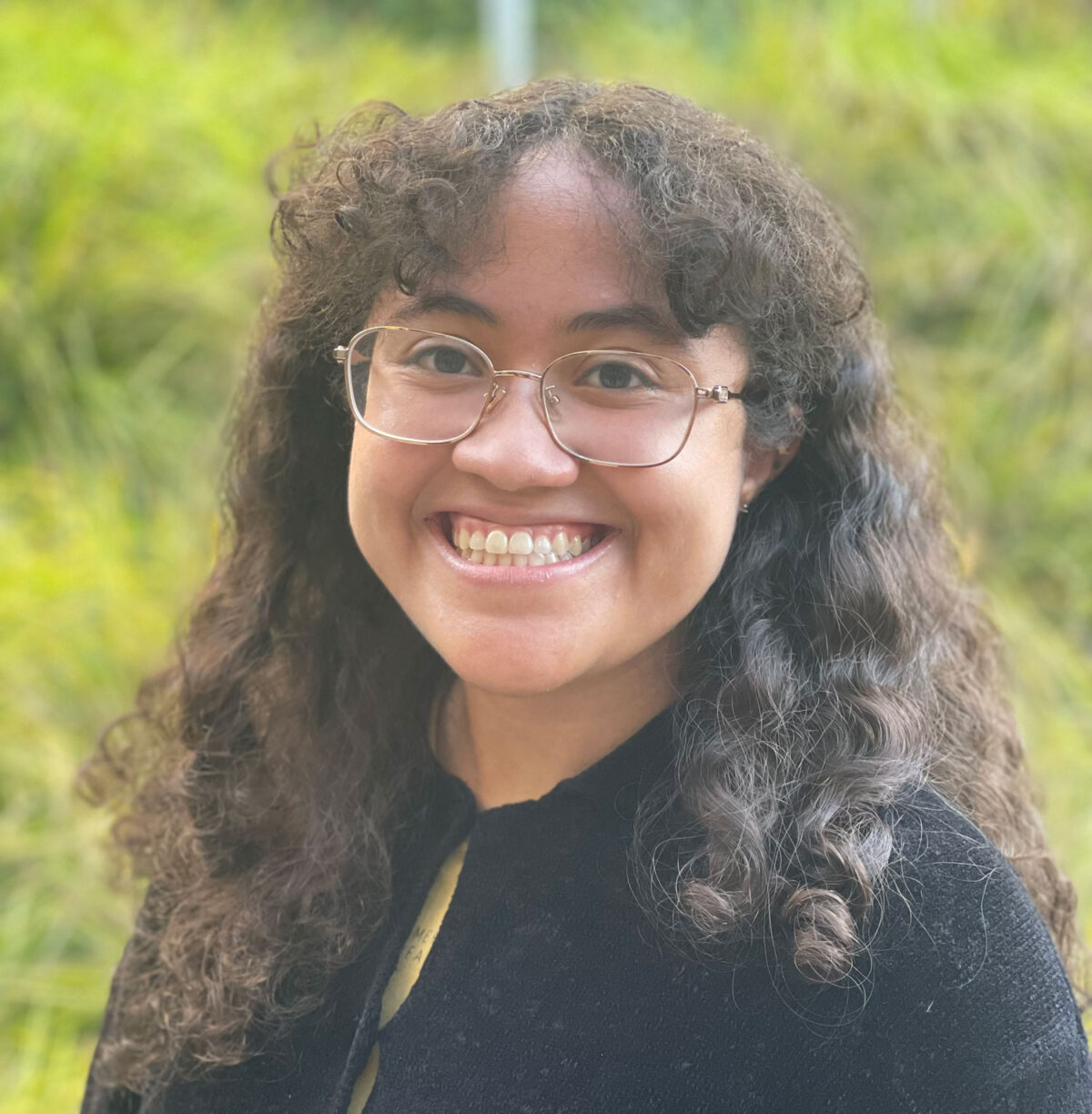
How has the job of grounds supervisor changed since the coronavirus pandemic altered the learning landscape at the University of Washington Bothell? Tyson Kemper answers a few questions from Sean Park.
Q. What would you normally be doing now and where?
A. Exactly the same thing — but I wouldn’t be talking to you on Zoom. We’d be having this interview in person.
A large part of my day is spent interacting with students and faculty, whether I’m giving tours or guest lectures, or working on hands-on, more visual and physical types of projects. For obvious reasons, this has temporarily stopped.
I still interact with the landscape in the same way. The vast majority of my job, outside of connecting with people, has been exactly the same.
The Grounds Department is functioning more or less as it would otherwise, with the exception of not having as much to clean — litter trash, food spills and all the stuff that comes with a public place.
We haven’t seen as many students and staff recently compared to people from the community who are coming to take walks around campus. They like to use this place as an outlet to get out and be active. Lot of dog walkers, couples walking, family walks. This has been nice because it grounds us on what we are doing and makes us feel like we have a purpose and are providing a service to people and our community in an essential way.
Q. What are you trying to work on (or just do) today?
A. We’re coming out of spring break, and this extra time has allowed us to spend more time on projects than we usually do during our seasonal breaks. The list of tasks includes pressure washing (places like the Promenade and the Plaza), clearing things that are disruptive (noises that could distract a classroom, physical objects that need to be moved), messier projects that require trackers and trucks and roadways and sidewalks (creating new beds, planting large trees). So now we have an opportunity to do more pressure washing and cleaning.
The fact there are very few people on campus opens up the possibility to explore more changes and improvements to the campus landscapes in bigger ways we normally wouldn’t be able to do until summer. We are trying to take advantage of this gift, where there are fewer distractions and we can get a lot of work done.
Q. What adjustments have you made to complete your work or fulfill your responsibilities?
A. Physical distancing from co-workers. The Grounds Department is lucky that we operate out of our own building — the Chase House. There are eight of us, so we can do a good job of limiting general contact. We are adapting and helping each other by maintaining a balanced schedule where we can all take off time as much as possible while keeping a skeleton crew on the grounds. We can avoid everyone coming in on the same days. We have staggered our breaks so we aren’t taking breaks at the same time and creating space within the breakout room. We are riding our utility vehicles alone and taking on more independent projects.
It is business as usual. We still have lawns to mow, weeds to weed, plants to plant and infrastructure to take care of, so all of that is proceeding normally.
We are operating carefully and respectfully, trying to be a model for the community. We are practicing physical distancing as well as helping behind the scenes — such as external touchpoint wipe downs every day. We wipe down all the crosswalk push buttons, outdoor handrails, outdoor seating areas and door handles for those users who need to come to campus. We are doing everything we can to keep our grounds as safe and clean for them as possible.
Q. What are you doing to care for yourself or for others?
A. My wife, a veterinarian, and I are still working. The biggest issue in our mind right now is our kids. We have two grade-school kids, and it’s important that they don’t get too off-schedule. I make sure to take a time off to be with them, to help keep them focused, active and healthy, both mentally and physically. Luckily, they’re both tech-savvy so online class accessibility hasn’t been an issue, but they are missing out on other important aspects: after-school activities, sports, sleepovers, hanging out with friends. A lot of their interactions were already through the screen, and now that that’s the only option. It’s about finding that balance so they aren’t on the computer all day.
It’s really about helping them use their time well. We started after-dinner walks where we can get out of the house and talk casually about anything or just walk around outside. We started cooking together, reading more and just trying to get them more involved, such as teaching them more life skills.
Not much has changed for my wife and my daily schedule, but my kids are trapped inside all day. Homeschooling is really challenging! This makes me value education that much more.
Q. Do you have a change of perspective to share – about life or work?
A. Similar to what I always say in my tours and outreach is the idea that everything always comes back and connects to the garden (nature) in some way. In a philosophical sense, everything always comes back to nature, and we depend on nature for so many critical functions of our lives, both in terms of resources as well as an ecosystem.
This experience has been an affirmation of this concept. The fact that I’m still working shows that gardening is critical through this type of disruption in economics and people’s flow of life. It’s also a reminder that the infrastructure that we build closer to our communities — community gardens, farming areas, green infrastructure dealing with stormwater, wetlands — has been strong and provided for us through this crisis.
It’s an affirmation that all these things are important as well.
Q. What other thoughts or feelings do you want to share?
A. A big push we’ve been doing recently with our campus gardens is the idea of permaculture, especially surrounding food scarcity. To promote this, we have created the Farm on campus, the Food Forest at Cascadia College and food-centered pieces of landscape like the Herb Walk.
Hopefully, this situation will demonstrate how we can address food scarcity to people who did not know what it is or realize how serious it is and the science that goes behind it. I hope the attitude is a bit shifted around this after we all go back to our normal routines. It’s the idea that we can still provide for ourselves with our gardens.
As for looking into the future, I think a program combining coding and gardening would be interesting.



